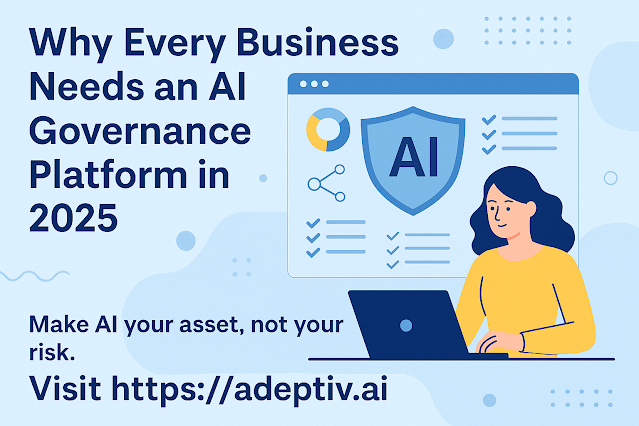Why Every Organization Needs an AI Governance Framework & AI Risk Management Framework in 2025
As artificial intelligence continues to reshape industries, governing AI responsibly is no longer optional — it’s a necessity. Whether you're building a chatbot or deploying complex predictive algorithms, you need both an AI governance framework and an AI risk management framework to stay compliant and trustworthy in the digital age.
✅ What is an AI Governance Framework?
An AI governance framework is a structured approach that helps organizations define policies, responsibilities, and ethical boundaries around AI systems. Think of it as the rulebook for how your organization designs, builds, and monitors AI tools.
It focuses on:
-
Transparency & explainability
-
Accountability & oversight
-
Ethical considerations
-
Data governance
-
Compliance with regional and global laws (like the EU AI Act, NIST, ISO 42001, etc.)
🚨 Why You Need an AI Risk Management Framework Too
While governance sets the vision, AI risk management handles the execution. An AI risk management framework helps identify, assess, and mitigate potential risks — from biased algorithms to cybersecurity threats.
Key elements include:
-
Risk classification (low, medium, high)
-
Ongoing monitoring and audits
-
Contingency planning
-
Human-in-the-loop decision-making
🌍 Combining Both: The Future of Responsible AI
In 2025, integrating both frameworks is a strategic move — not just for compliance, but for trust. Governments, investors, and users increasingly favor organizations that can prove their AI is safe, ethical, and well-governed.
If you're building AI today, ask yourself:
Do we have the right frameworks in place to scale safely and responsibly?
📌 Want to implement an AI governance or risk framework?
👉 Visit our website for resources and expert consultations.
Click this link to get started: https://adeptiv.ai/
.png)


Comments
Post a Comment